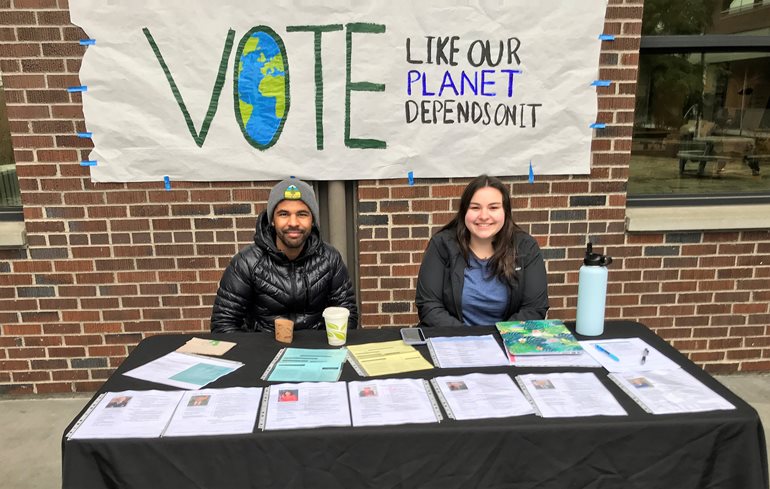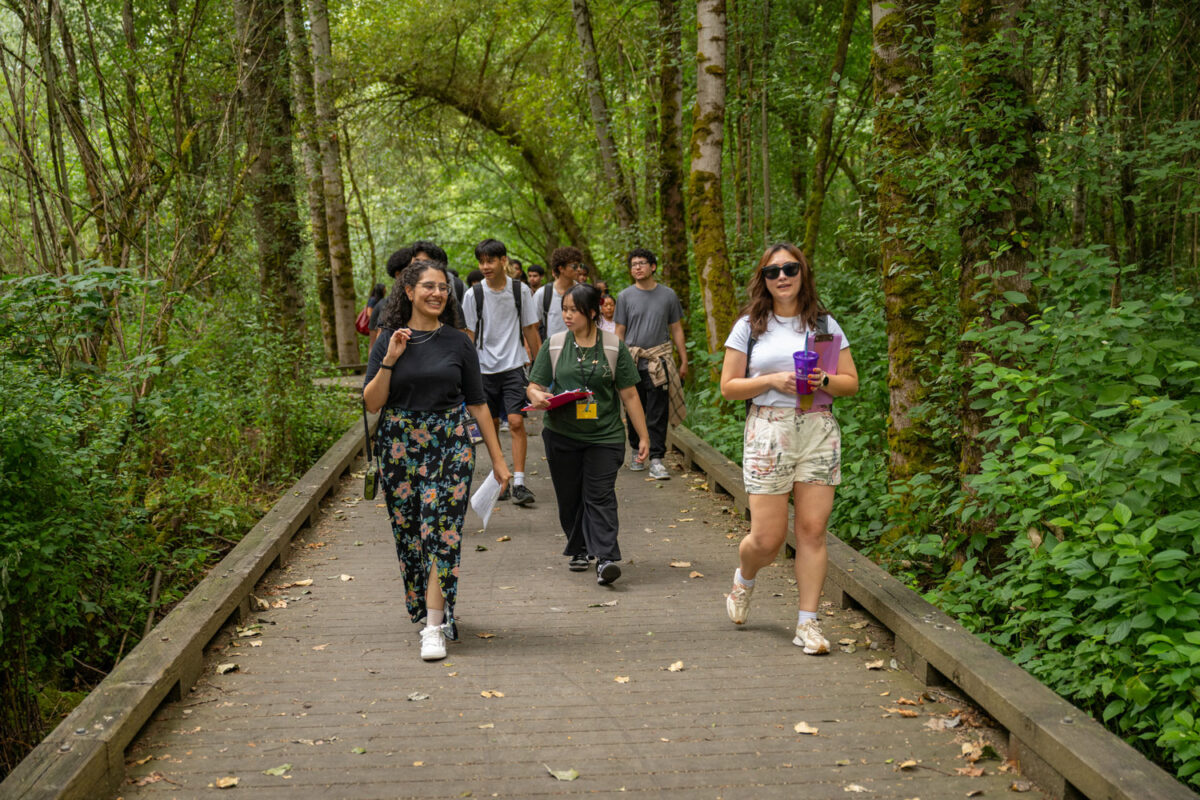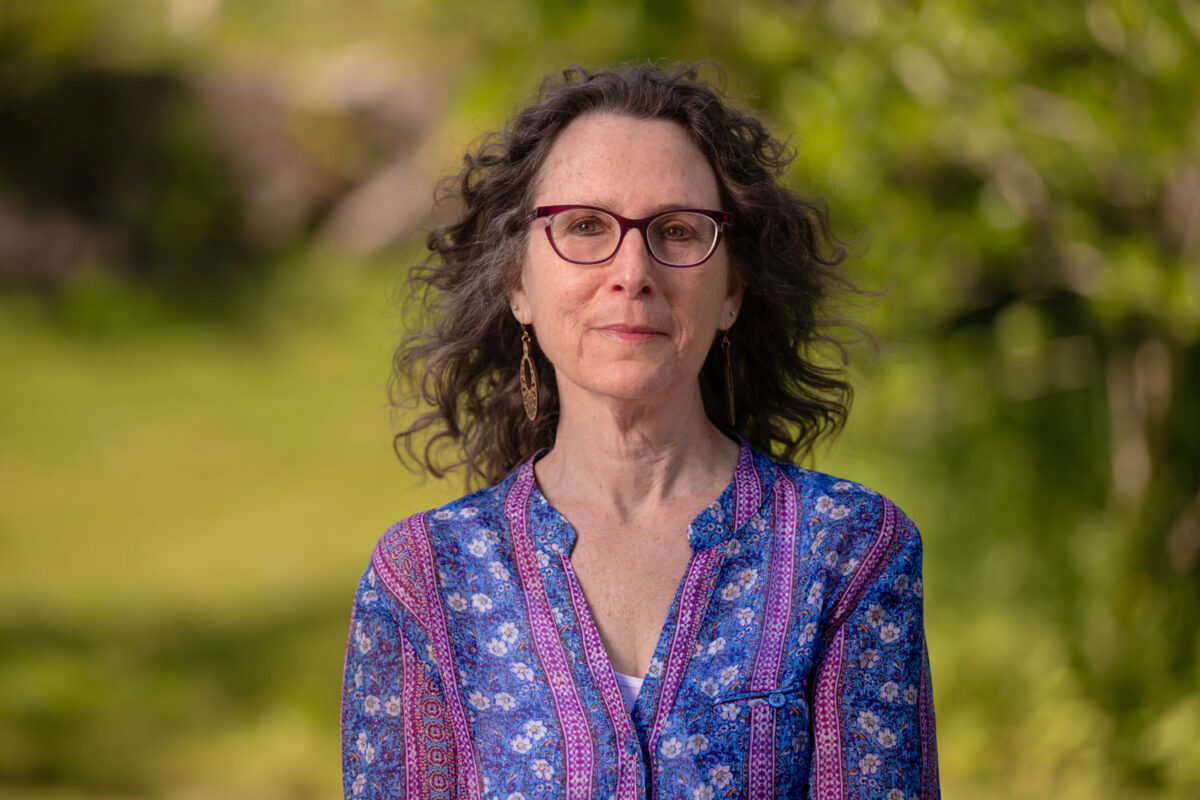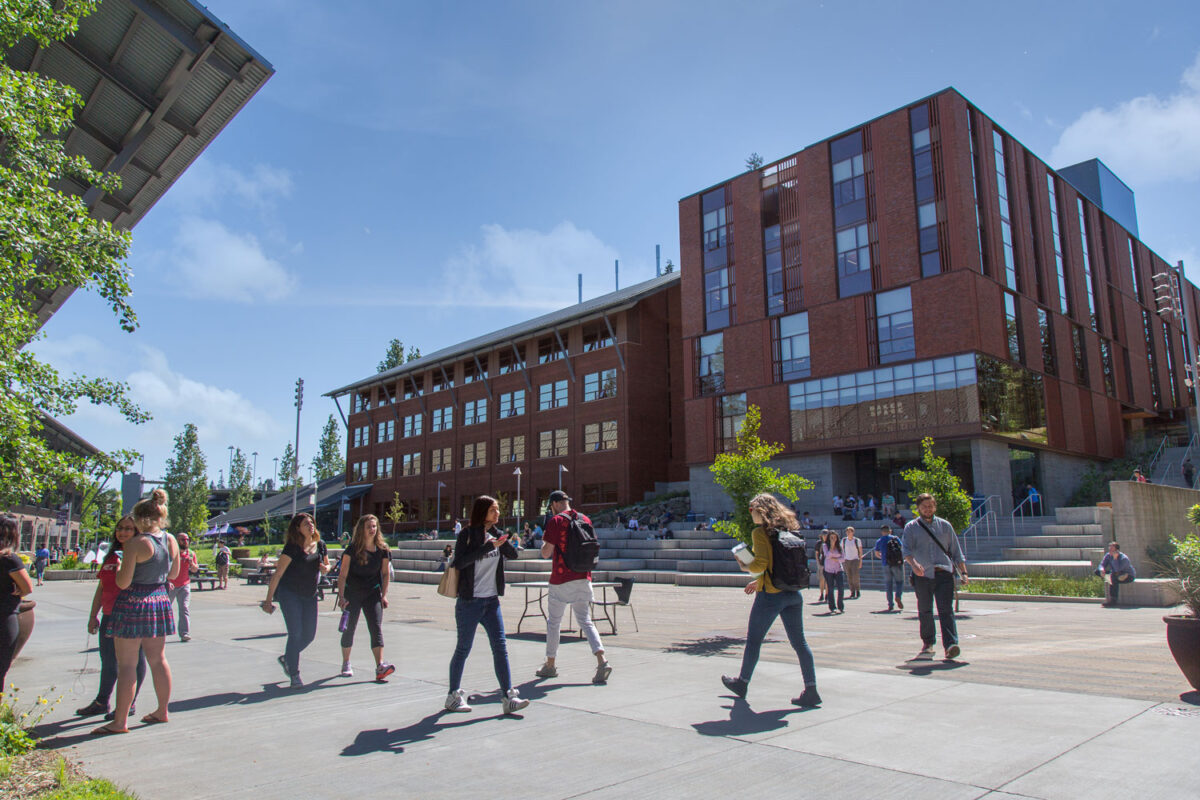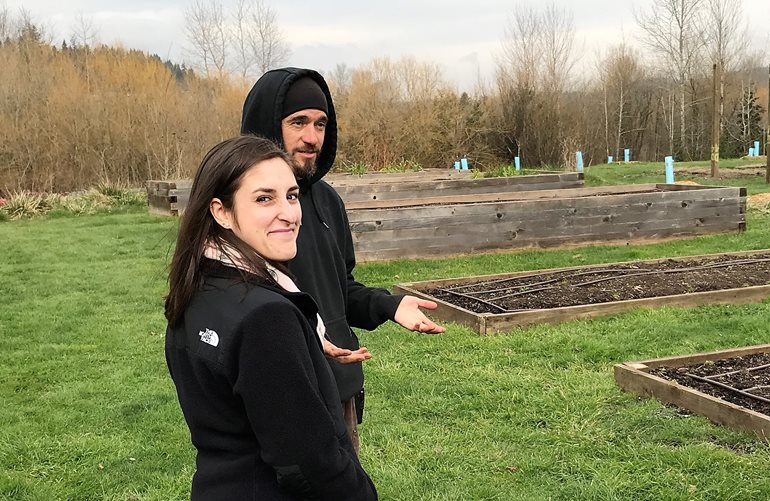
While Earth Day events this year have been set aside because of the coronavirus precautions, sustainability remains an everyday priority at UW Bothell, carried forward through academic programs and campus operations. Students can major in Environmental Science or Environmental Studies, for example, or get their feet muddy collecting samples in the wetlands and their hands dirty planting seeds in the greenhouse at the Sarah Simonds Green Conservatory.
Working alongside professors, undergraduate students have been helping Jeff Jensen try to restore salmon populations locally, studying water quality issues with Senior Lecturer Rob Turner, surveying tree populations with Associate Professor Warren Gold or interpreting crow behavior with Assistant Professor Doug Wacker, all faculty members in UW Bothell’s Schools of STEM or Interdisciplinary Arts & Sciences.
Students also got hands-on experience with the campus Farm, a garden of raised beds located between the sports fields and the north parking garage. It’s an outdoor learning space that also provided 200 pounds of produce — cabbage, potatoes, garlic, squash, celery and cucumbers — to the Husky Pantry and Kodiak Kitchen last year.
In addition to her job as sustainability coordinator, Alexa Russo (Environmental Studies ’17) also worked directly with students as the adviser for the Sustainable Student Action Club and through her work with the “CCUWBee” research, in which students surveyed pollinators on the shared campus.
Where the land tells a story
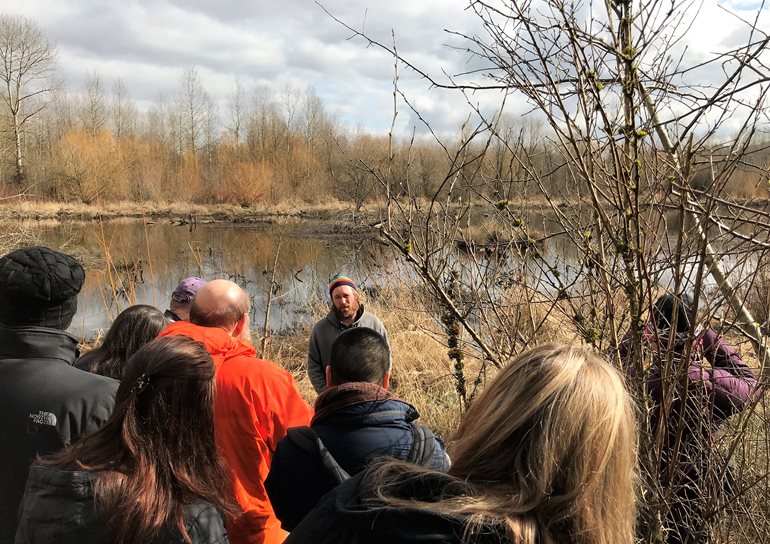
More than a dozen local community members recently had an opportunity to learn about campus history and tour the wetlands Feb. 26 at the Whole U event conducted by Russo and Tyson Kemper, grounds supervisor.
They told how, after the state bought the 127-acre property, a decision was made to restore wetlands, in what was one of the largest ecological restoration projects of the time. North Creek was rerouted to a meandering path. The land was recontoured, and thousands of native trees and shrubs were planted. The restoration has been continuously maintained.
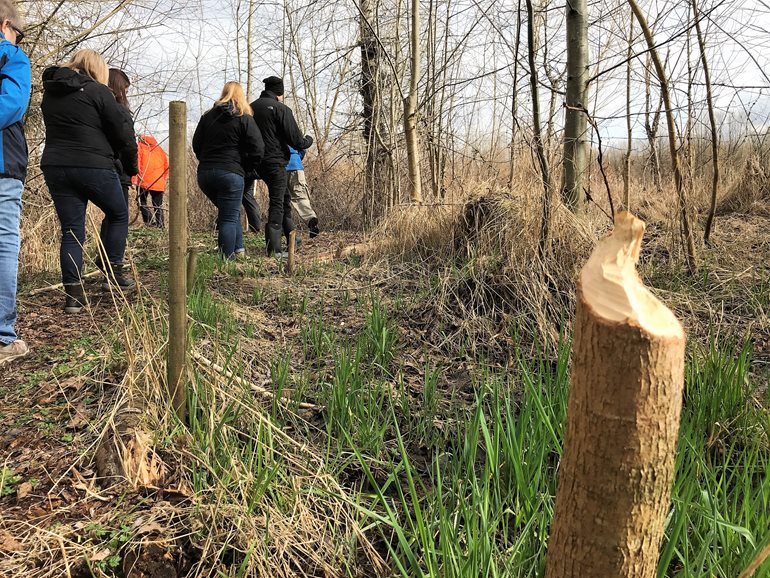
Campus gardeners Gabe Barnes and Chris Mangialardi led the wetlands tour. Many of the visitors were aware the wetlands have become home to a roost of about 16,000 crows. Not everyone knew about its dam-building beavers, however, until they saw the gnawed tree stumps.
Visitors can learn more about different types of campus trees and bushes at any time, thanks to new QR codes placed on plant tags, mostly around the Conservatory. Pointing a smart phone at the code instantly brings up a webpage with original, specific information on that plant.
The QR codes are a recent project of Sarah Verlinde, a research specialist who also manages the UW Bothell Herbarium.
Where students are growing
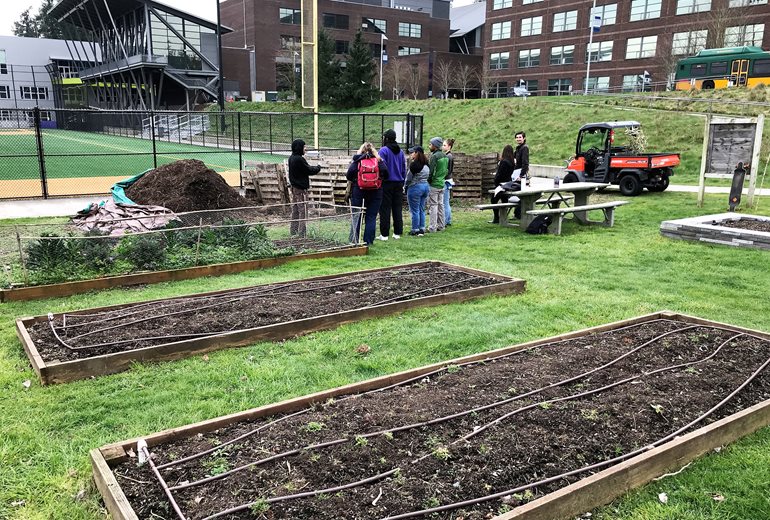
Kemper, the grounds supervisor who often shares his knowledge with students, introduced members of the Sustainable Student Action Club to the Farm Feb. 29 and led them in starting seeds in the Conservatory. Come warmer weather, they also will help transplant the seedlings outside.
One eager participant was Ella Chebotareva, a senior majoring in Environmental Studies. She is a club member who also works as an assistant to Russo. “I really want to encourage people to get out in nature and get their hands dirty. I think that’s really important,” said Chebotareva, who hopes to continue working in sustainability after graduating.
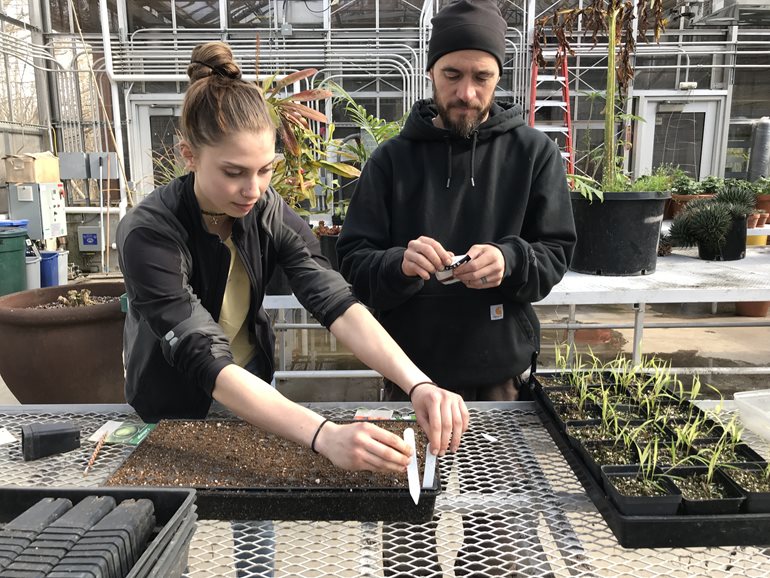
Attending a university that values sustainability, she said, “makes me feel more integrated within the University and that my actions are more important, more valued.”
Also getting his hands dirty was Tyrell Dozier, a senior majoring in Law, Economics & Public Policy who believes climate change is the biggest issue of our time.
“Sustainability, to me, means using resources in a way that doesn’t impede future generations’ ability to use those resources as well,” he said. “People at UW Bothell in groups like this are doing work that helps further that goal and teach people about the importance of sustainability.” Dozier says he hopes to work with climate change organizations after graduating.
Where students are creating change
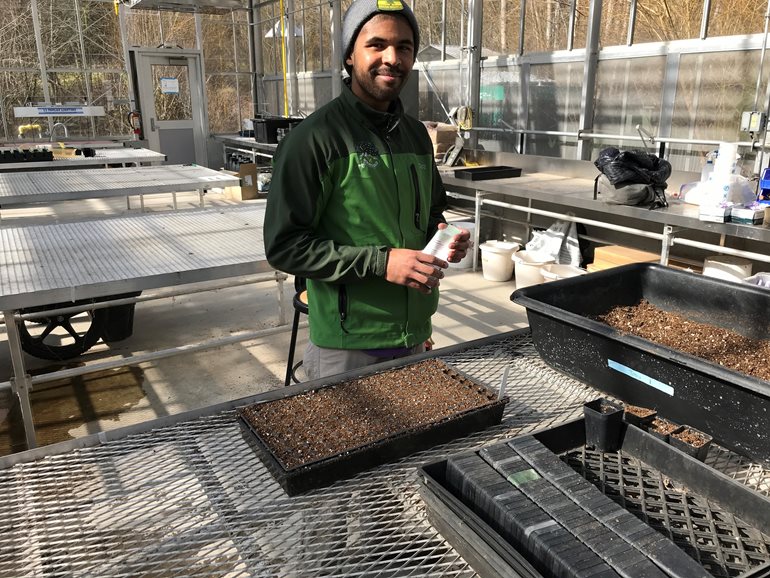
Dozier also is a member of the Environmental Policy Coalition, a separate club that focuses attention on the environment and how it affects UW Bothell students. On a rainy March 2, Dozier and fellow student Yasemin Ibrahim sat at a table on the Promenade and engaged students in discussions about the climate policy positions of presidential candidates.
A couple of students wanted to talk about ocean clean-up. Ibrahim was surprised that a few others brought up nuclear power. “Why not nuclear energy? It’s carbon free,” they said.
Ibrahim, a junior majoring in Law, Economics & Public Policy and in Environmental Studies, said UW Bothell has heightened her awareness and changed her behavior.
“I’ve taken a lot of classes that have to do with the environment, and it’s made me more aware and made me want to do something about it,” Ibrahim said. “I’ve been diverting from plastics. I use reusable everything now. I’m very conscious of what I’m buying — whether it’s wrapped in plastic and how it affects the environment.”
Ibrahim also wants to use more public transportation to avoid driving. “I’m more aware of how my ecological footprint is affecting my community and the climate as a whole,” she said.
